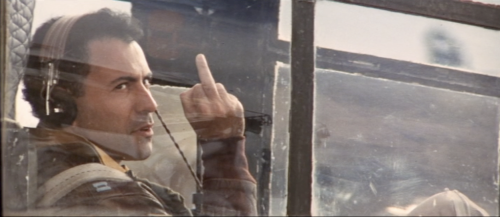Catch-22

(by Joseph Heller) (1961)
“There was only one catch and that was Catch-22, which specified that a concern for one’s own safety in the face of dangers that were real and immediate was the process of a rational mind. Orr was crazy and could be grounded. All he had to do was ask; and as soon as he did, he would no longer be crazy and would have to fly more missions. Orr would be crazy to fly more missions and sane if he didn’t, but if he was sane he had to fly them. If he flew them he was crazy and didn’t have to; but if he didn’t want to he was sane and had to. Yossarian was moved very deeply by the absolute simplicity of this clause of Catch-22 and let out a respectful whistle.”
And so on. Kafka, and in particular, Gogol would have lapped-up Heller’s great book – it is almost Russian in its perversity, paranoia and nihilism. But there is also the modern American matter-of-fact approach, a la the novels of Mailer, Vonnegut, and Vidal. It is also ripe, sexy, sexist, full of characters ridiculously shaped by war, boredom and the arbitrary military life…it is a great novel of war and madness.
Anthony Burgess [in Ninety-Nine Novels] wrote: “His approach is satirical but it is also surrealistic, absurd, even lunatic. But the aim is serious enough – to show the mess of war, the victimization of the conscripts, the monstrous egotism of the top brass. The Nazis are not the target, and the ethics of the struggle against an evil system are hardly touched upon…and the earnest reader may wish to question whether one can in fact write a satirical novel about World War II. But the mythopoeic power of Heller’s novel is considerable.”
Leave a comment...
While your email address is required to post a comment, it will NOT be published.



2 Comments